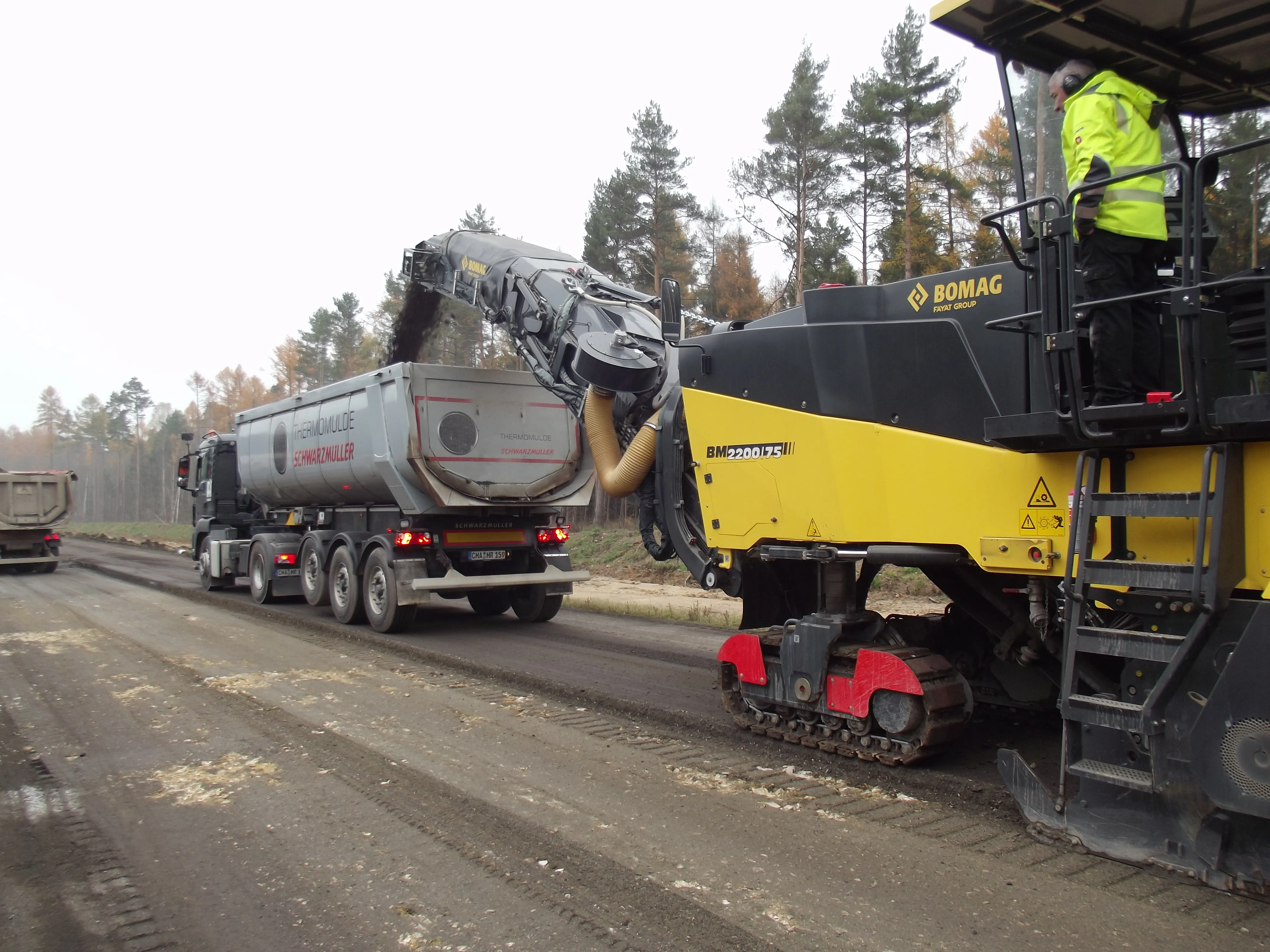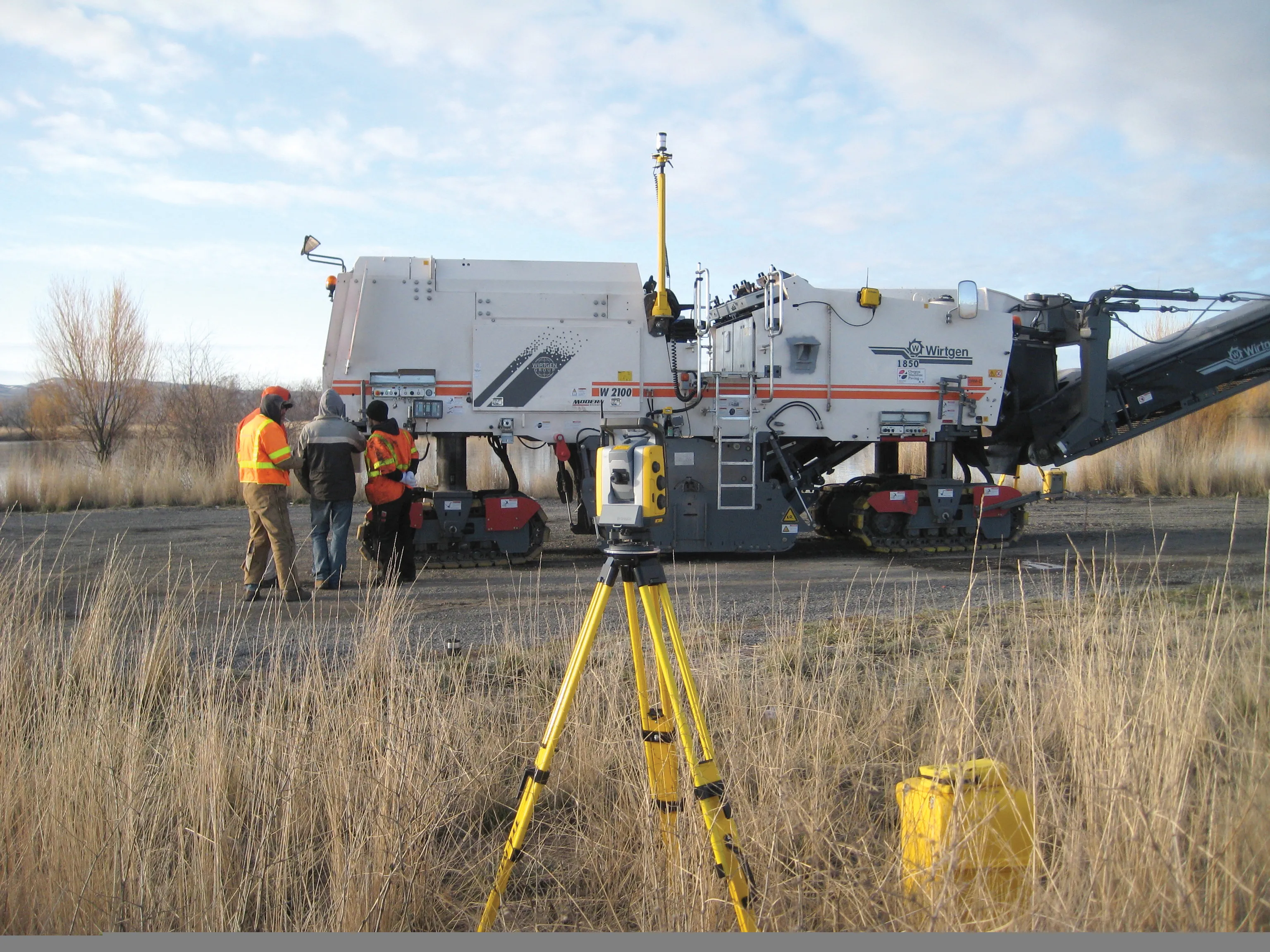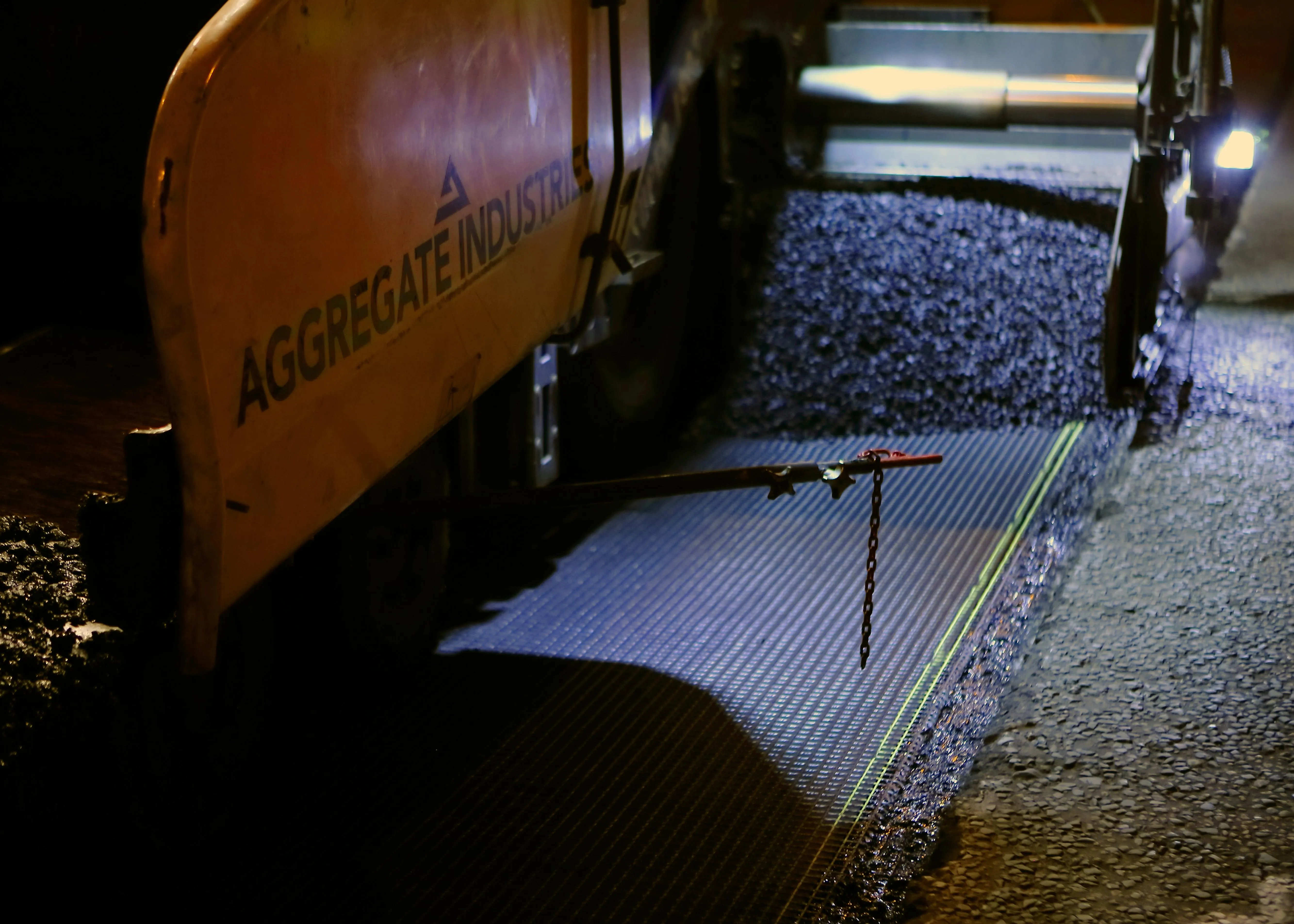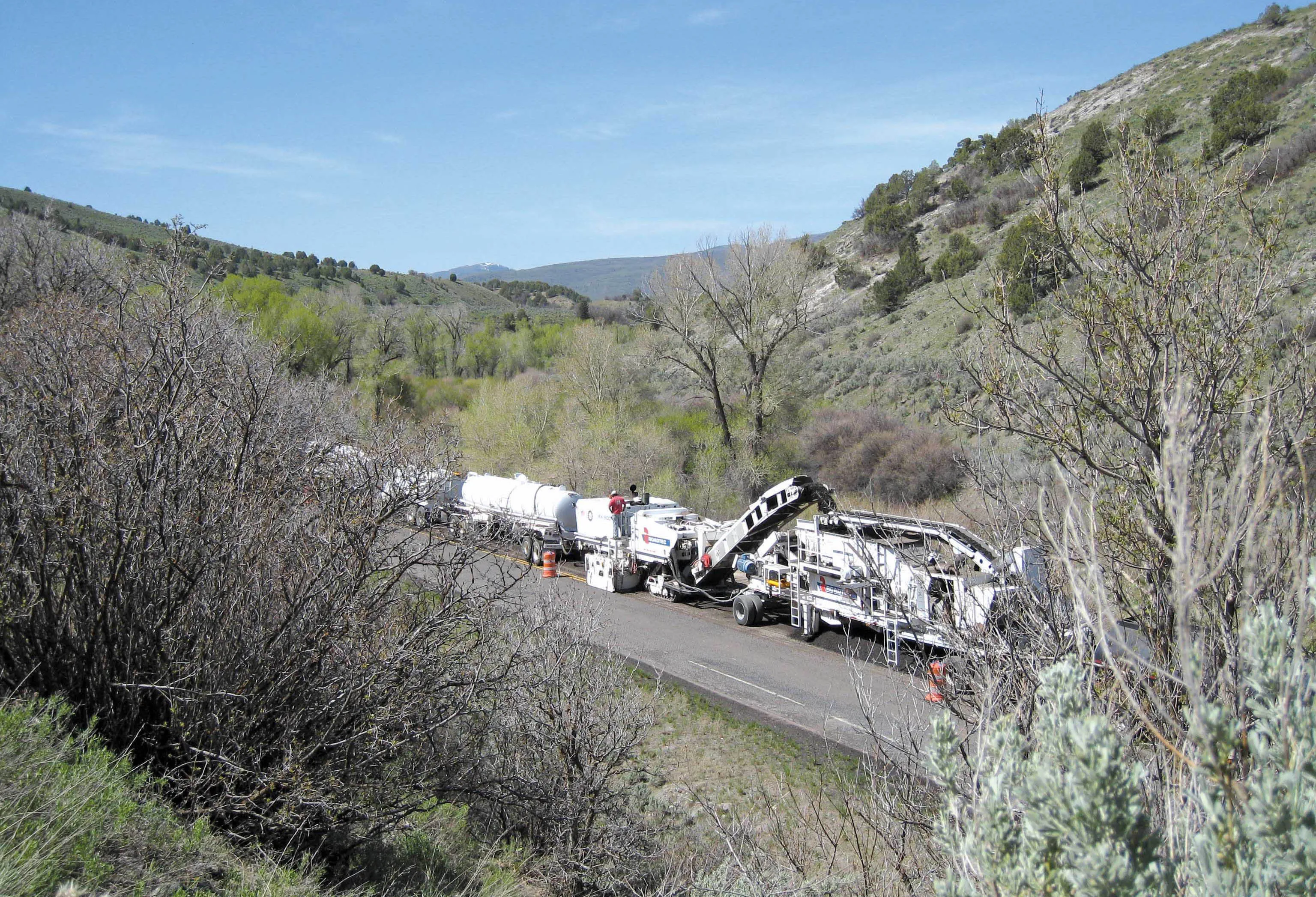
Work on the section between Amberg and Pittersberg started at the end of 2016 after the Ministry of Transport classified the road as being in “urgent need” of upgrading as part of the Federal Transport Infrastructure Plan. Actual roadworks began in mid-June 2017 after essential forestry work had been carried out, such as the removal of tree roots on both sides of the road.
The existing road, which will become the Schwandorf-Amberg carriageway, will be given a new pavement this spring. However, before this happens, the old road structure has to be fully removed down to the subsoil.
Fiedler, a contractor from nearby Röhrnbach in the southern Bavarian Forest, has wide expertise in removing concrete and asphalt pavements in layers or, as in the case of the B 85, full-depth removal. Fiedler uses
Due to the tight construction schedule, full removal had to be completed before the first frosts at the end of 2017. Using a risk-avoidance approach on this €10 million project, the company chose the new BM 2200/75 model with its noted power and low operating costs, such as less fuel consumption, said Georg Fiedler, company owner.
The complete asphalt removal is carried out in two stages, extending it to 22,000m². Firstly, the surface course was removed with an average thickness of 4cm. In the second milling step, the bearing course was removed with an average layer thickness of 26cm.
Although mixed materials and differing layer thicknesses were found in the course of milling work, the BM 2200/75 readily handled these variable materials and thicknesses extremely well, said Fielding.
Highway contractors depend on easy, straightforward transportation of their equipment from site to site. BOMAG designers came up with a novel solution: the entire milling box with drum is equipped with a quick-change system. The entire milling box can be removed and reinstalled in just 30 minutes. This short set-up and removal time is aided by quick-release hydraulic couplings instead of the usual bolted connections.
“Without a milling box and drum, the weight is below the key 60-tonne limit,” explained Hans Kraft, company managing director. “Even the hydraulically folding conveyor belt that comes as standard helps to reduce transportation issues.”
Fiedler’s BOMAG BM 2200/75 has also been refitted easily and quickly for a range of applications on site and at the contractor’s yard. BOMAG offers a wide range of milling drums, including a standard milling drum, a fine milling drum, and a Powerdrum. Each is available in 2,000mm and 2,200mm widths for milling depths up to 330mm.
Bomaag will be at INTERMAT - International Exhibition for Construction and Infrastructure - in Paris, April 23-28.








